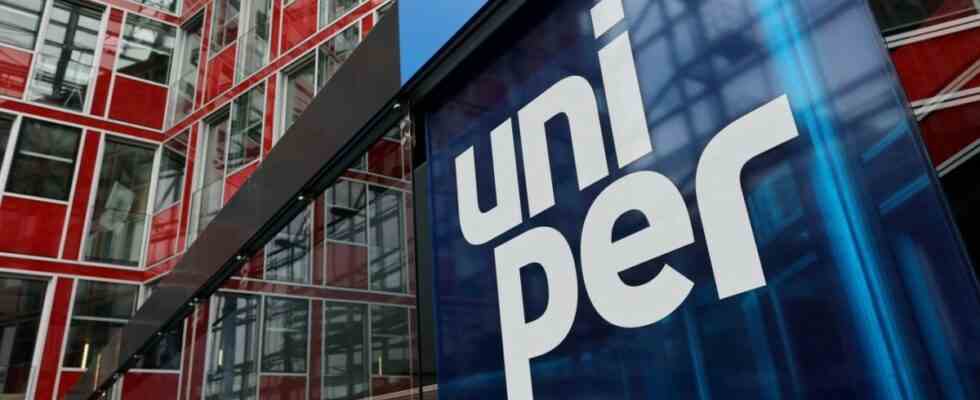Even though the carnival revelers have been dominating the streets in the Rhineland since Thursday: the presentation of the balance sheet by the Düsseldorf energy company Uniper on Friday was an extremely sober, perhaps even depressing event. Germany’s by far largest gas importer had to be nationalized and rescued with tax money at the end of last year after the Russian supply disruptions plunged the company into a crisis. A total loss of around 19.1 billion euros was incurred for 2022. At least the company could announce nowthat these defaults would no longer burden Uniper’s profits “by the end of 2024 at the latest”. For the current year, the group only promises that the loss will decrease.
Outgoing CFO Tiina Tuomela said a more accurate forecast is not possible because Uniper’s earnings will “significantly” depend on the gas price. The group, with its 7,000 employees, supplies more than 500 municipal utilities and 500 other industrial customers with the raw material. Since Moscow cut exports, the company has had to buy the gas on the market at high prices in order to fulfill old supply contracts. However, most of these loss-making contracts will expire by the end of the year.
The miraculous reduction in the loss since November also shows how strongly the gas price is affecting earnings. At that time, the people of Düsseldorf calculated that a loss of 40 billion euros was posted from January to September – a sad record in Germany. Now it’s only 19.1 billion euros for the year as a whole.
However, this is not because Uniper suddenly made huge profits between October and December. Rather, the cause is that expected future losses from the gas business were included in the deficit of 40 billion euros. And since the price of the raw material has fallen, Uniper was able to reduce these forecast losses from 30 to six billion euros – which explains why the annual loss was lower.
Beyond gas trading, Uniper “performed strongly overall,” said Tuomela, who will soon be moving to former Uniper major shareholder Fortum, a Finnish energy company. Uniper is also an important European electricity producer – one of the largest in Germany. The company was formed when Eon spun off its business with climate-damaging coal and gas-fired power plants and gas trading in 2016. And profits from coal and gas-fired power plants almost tripled last year as a result of the high prices. Only Uniper’s Swedish nuclear reactors contributed losses because the group had to set aside more money for future decommissioning and two plants failed at times.
However, the future of Uniper’s power generation should not belong to coal, gas and nuclear power plants, but to renewable energies. That is why the group is investing in solar and wind power plants. However, the new board should not announce an updated strategy until it has taken office. The previous management around the CEO Klaus-Dieter Maubach and CFO Tuomela is stepping down.
Putin’s placet is still missing
The eco-systems are then supposed to replace the German coal-fired power plants, which Uniper has to shut down by 2025 – except for Datteln 4, which the group will sell anyway according to the will of the EU Commission: one of several conditions for state aid. The company also wants to sell its Russian subsidiary Unipro with its gas and coal-fired power plants; the transaction no longer appears on the balance sheet.
Tuomela said that a sale would still require approval from the President, i.e. from Vladimir Putin himself. Nevertheless, Uniper has according to the annual report de facto no longer has any control over the subsidiary, although the Germans are still the majority owner. The removal from the balance sheet burdens Uniper with a good 4.4 billion euros – another blow for the Russia-damaged company.

